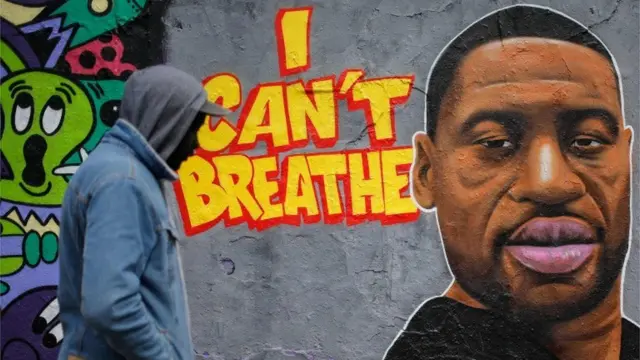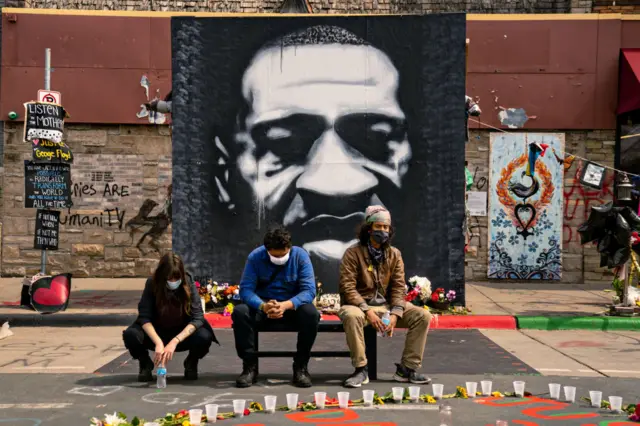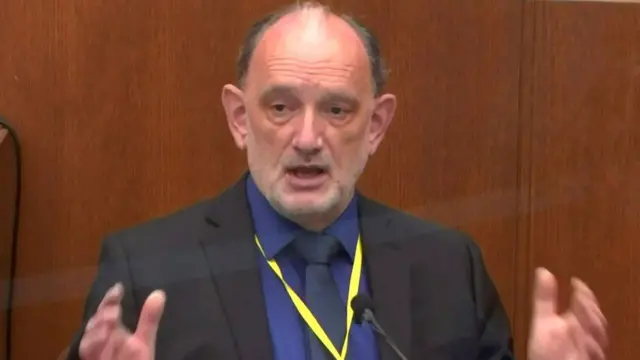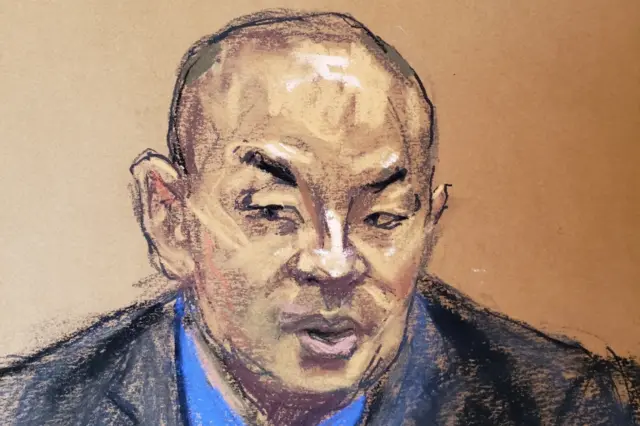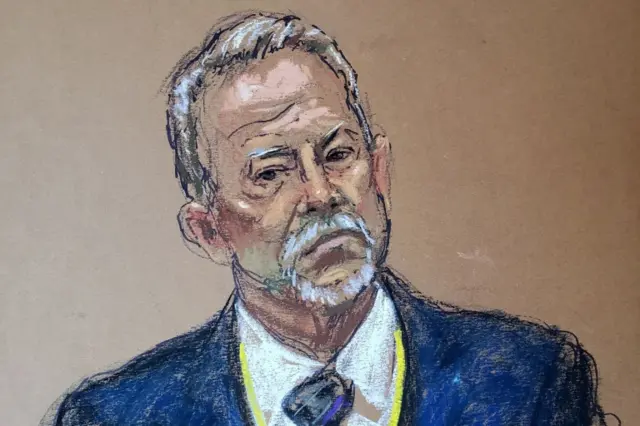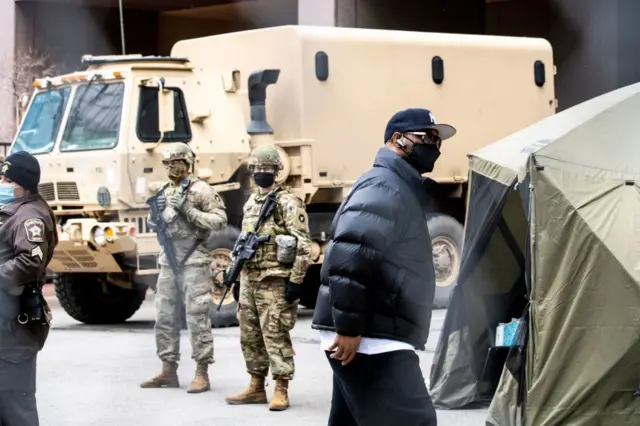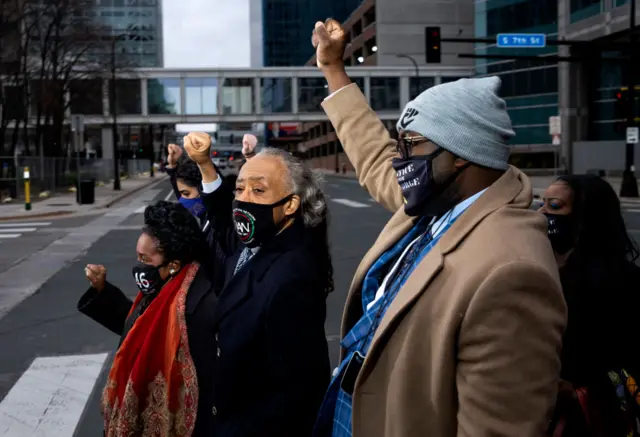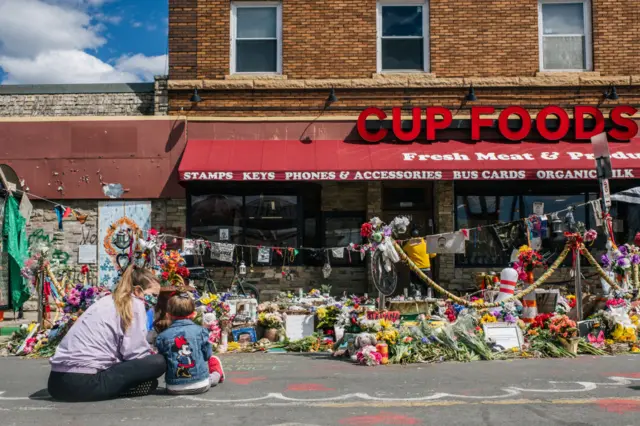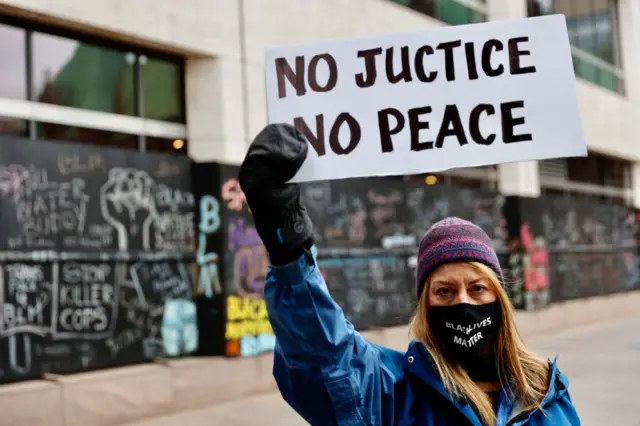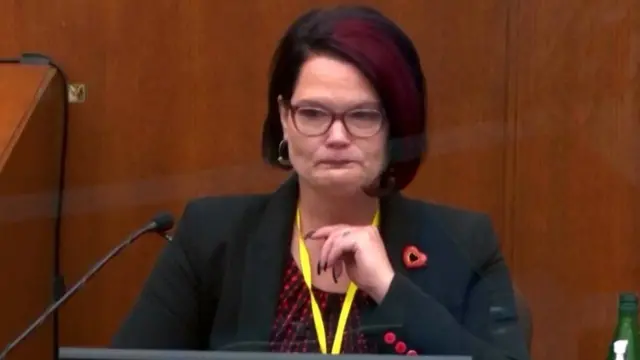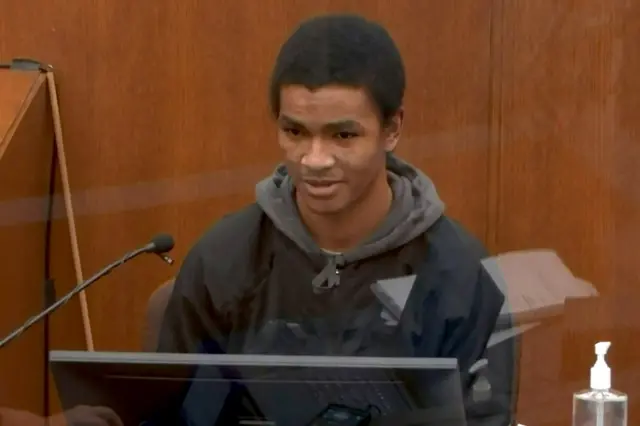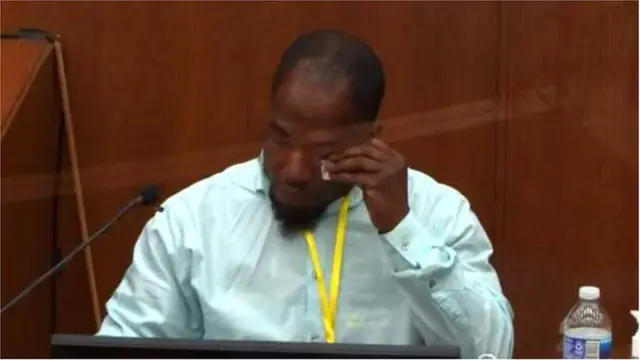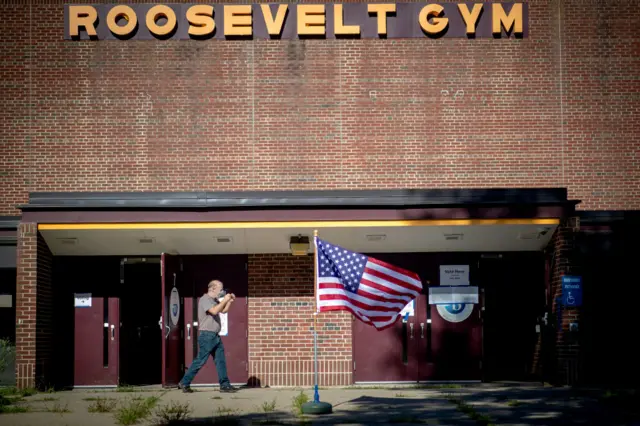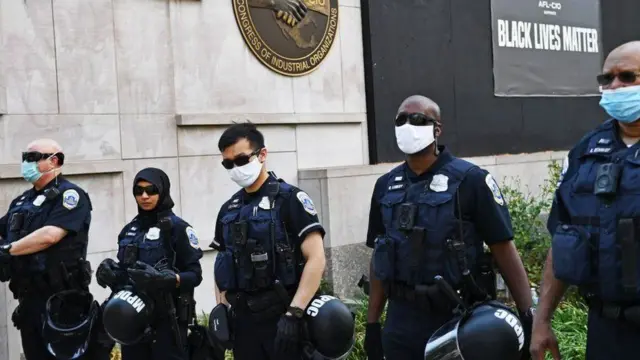What were the prosecution's main arguments?published at 21:08 BST 20 April 2021
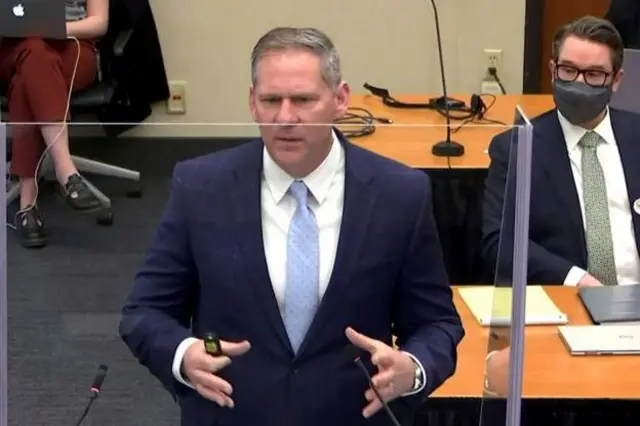 Image source, Reuters
Image source, ReutersLead prosecutor Steve Schleicher
The prosecution against Chauvin was long and complex. Over 11 days, prosecutors drew on expert testimony, medical analysis and hours of video footage to make their case.
We’ve boiled the prosecution’s case down to three core arguments, which they drilled home to the jury throughout the trial.
1) Chauvin didn’t follow his training
Chauvin "chose pride over policing", prosecutors said. They tried to prove that Chauvin "betrayed his badge" because his treatment of Floyd did not reflect his formal training in use of force and crisis intervention.
2) Floyd died from a lack of oxygen
Floyd died from a lack of oxygen because the force Chauvin applied to his neck during his arrest constricted his breathing, prosecutors said. They questioned an intensive care doctor, Martin Tobin, who said Floyd's ability to expand his chest to breathe was severely impaired while on the ground.
3) Watch the video
"Use your common sense… believe your eyes," the prosecution told jurors. Prosecutors repeatedly showed the viral video of Chauvin kneeling on Floyd for more than nine minutes. “What you saw, you saw," prosecutor Steve Schleicher said.
